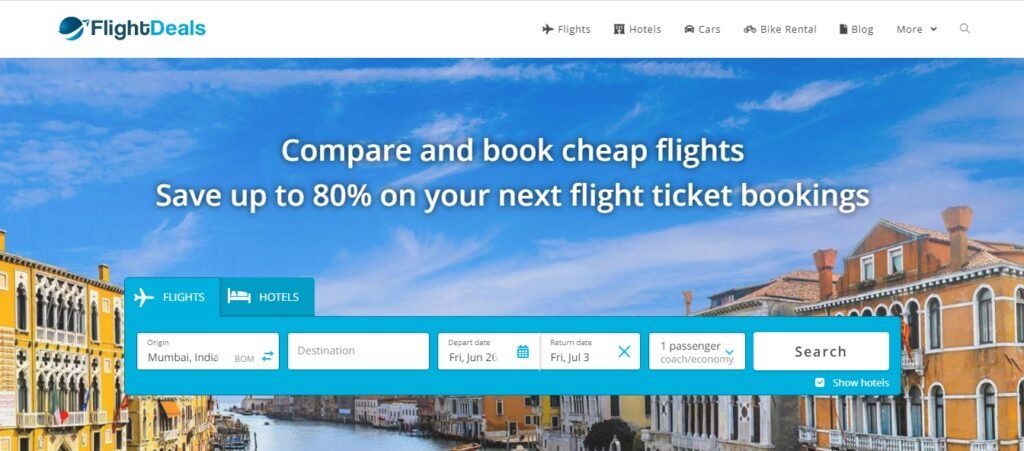Introduction:
As an On-Page SEO expert in a leading company specializing in generating organic traffic, I find myself at the forefront of the ever-evolving travel niche. Anticipating and adapting to future trends is crucial in this dynamic industry. In this comprehensive SEO analysis, we will explore the strategies required to ensure sustained success in the travel niche and, seamlessly, we’ll weave in the promotion of a promising “Travel Website for Sale” available at https://sitefy.co/product/travel-website/.
I. The Current SEO Landscape in Travel:
A. Keyword Research:
- In-depth Analysis: Begin by conducting an exhaustive analysis of high-potential keywords in the travel niche. Employ tools like Google Keyword Planner and SEMrush for a comprehensive understanding of search volumes and trends.
- User Intent: Prioritize long-tail keywords that reflect user intent, ensuring your content is not only discoverable but also relevant.
- Competitor Analysis: Investigate competitors’ strategies and identify gaps or opportunities for differentiation.
B. Content Optimization:
- Compelling Content: Craft content that goes beyond being informative – make it engaging, shareable, and tailored to user needs and interests.
- Optimized Meta Tags: Enhance click-through rates by optimizing meta tags, including title tags and meta descriptions. This not only improves search engine visibility but also encourages users to click through to your site.
- Multimedia Integration: Incorporate visually appealing elements such as images, infographics, and videos to enhance user engagement.
C. Mobile Optimization:
- Responsive Design: Recognize the importance of mobile responsiveness. A significant portion of travel-related searches happens on mobile devices, and a seamless experience can significantly impact rankings.
- Loading Speed: Ensure quick loading times to prevent user frustration and potential bounce rates, which can adversely affect SEO rankings.
II. Predicting Future SEO Trends in the Travel Niche:
A. Voice Search Optimization:
- Conversational Content: Anticipate the growing influence of voice search by crafting content that addresses conversational queries. This involves understanding the natural language users employ when speaking into voice-activated devices.
- Schema Markup: Implement schema markup to provide search engines with structured data, enhancing the chances of being featured in voice search results.
B. User Experience (UX):
- Holistic Approach: Understand that SEO is not just about keywords; user experience plays a pivotal role. Prioritize elements like website navigation, minimizing bounce rates, and overall usability.
- Page Experience Update: Stay updated with search engine algorithms, particularly Google’s Page Experience Update, which emphasizes factors like Core Web Vitals, mobile-friendliness, and HTTPS security.
C. Artificial Intelligence (AI) and Machine Learning:
- Predictive Analytics: Explore the role of AI and machine learning in predicting user behavior and preferences. Leverage AI-powered tools to understand and adapt to evolving user patterns.
- Personalized Recommendations: Utilize AI to provide personalized travel recommendations based on user preferences, enhancing user engagement and satisfaction.
D. Video Content:
- Visual Storytelling: Acknowledge the rising popularity of video content in the travel industry. Create visually appealing and informative travel videos, ensuring they are optimized with SEO-friendly titles, descriptions, and tags.
III. SEO Strategies for Travel Website Sale Promotion:
A. Integration of “Travel Website for Sale”:
- Strategic Placement: Seamlessly integrate promotions for the “Travel Website for Sale” within the content, ensuring relevance to the topic being discussed.
- Highlight Features: Clearly highlight the features and benefits of the travel website, catering to potential buyers.
B. Anchor Text Optimization:
- Strategic Anchoring: Incorporate strategically placed anchor texts that seamlessly guide users to explore the promoted link. Ensure that anchor texts are natural and provide context to enhance user experience.
- Relevance: Maintain a delicate balance between promoting the sale and providing valuable content to the audience. The key is to integrate the promotion naturally, avoiding any disruption to the flow of information.
C. Backlinking Strategies:
- Quality Backlinks: Build high-quality backlinks to the sales page from authoritative travel-related websites. This not only enhances the credibility of the sale but also improves the website’s overall SEO.
- Guest Posting: Leverage guest posting opportunities to strategically place backlinks that direct interested readers to the travel website for sale.
IV. Analytics and Monitoring:
A. Regular SEO Audits:
- Periodic Audits: Conduct regular SEO audits to identify potential issues and areas for improvement. This includes assessing on-page elements, backlink profiles, and overall website health.
- Algorithm Monitoring: Stay vigilant about changes in search engine algorithms. Proactively adapt strategies to align with any updates that might impact the website’s visibility.
B. Performance Tracking:
- Analytics Tools: Utilize tools like Google Analytics to track website performance, user behavior, and traffic sources.
- KPI Analysis: Establish key performance indicators (KPIs) and regularly analyze them to measure the success of implemented SEO strategies. This could include metrics like organic traffic, click-through rates, and conversion rates.
V. Conclusion:
In conclusion, the role of an On-Page SEO expert in predicting and adapting to future trends in the travel niche is instrumental in maintaining a competitive edge. By understanding the current SEO landscape, anticipating future trends, and seamlessly integrating promotional elements such as the “Travel Website for Sale,” a website can not only thrive organically but also open new avenues for business growth. As the travel industry continues to evolve, the adaptability and innovation of SEO strategies will be crucial in ensuring sustained success.



